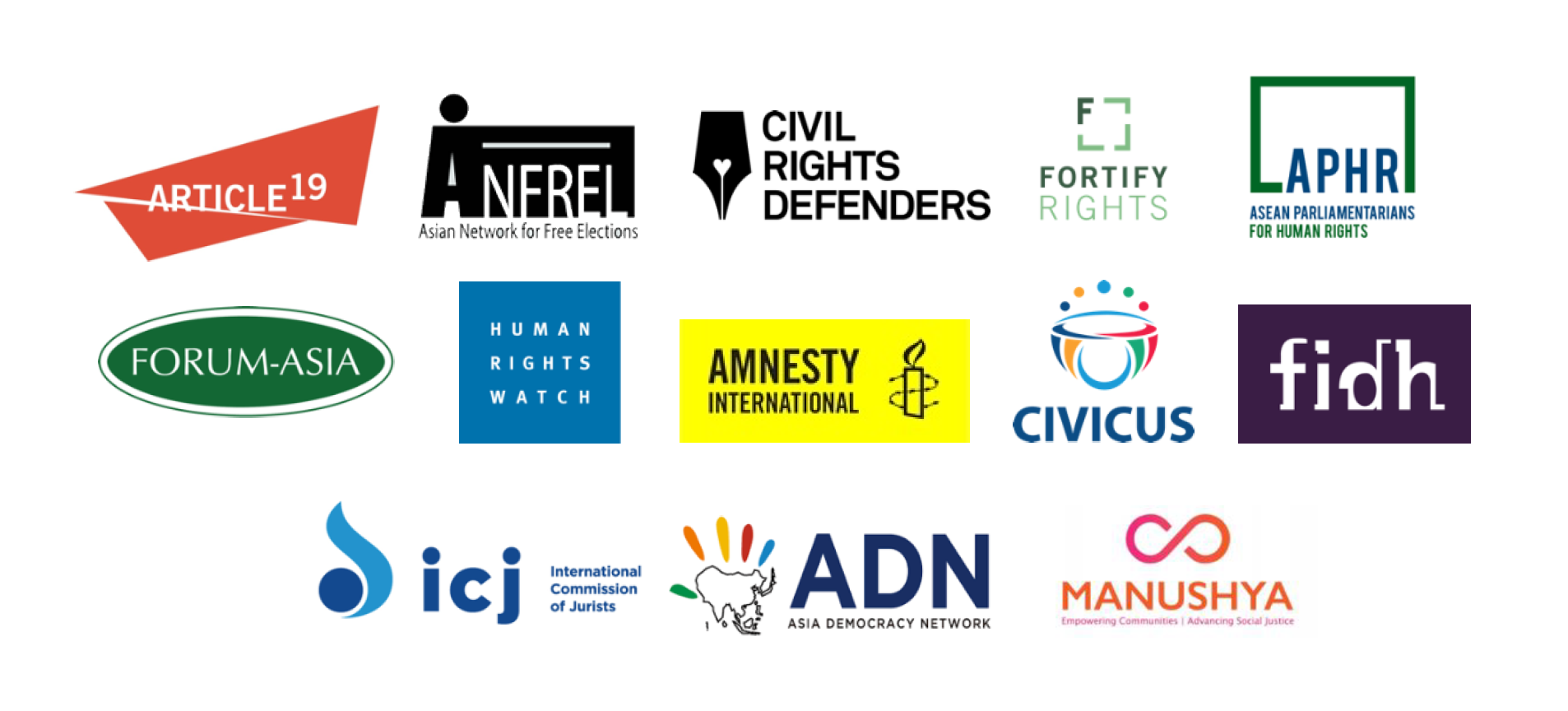Today, the ICJ joined other NGOs in condemning the Thai police’s use of force against peaceful protesters marching to the national parliament in Bangkok on November 17, 2020.
The statement reads:
We, the undersigned organizations, condemn the Thai police’s unnecessary and excessive use of force against peaceful protesters marching to the national parliament in Bangkok on November 17, 2020. We are concerned that authorities could employ similar measures when facing protesters who have declared they will march to the Siam Commercial Bank headquarters on November 25.
On November 17, police set out barriers and barbed wire to prevent a peaceful march organized by pro-democracy movements from reaching the parliament. Protesters planned to protest outside the parliament as members of parliament and senators debated seven different proposals for constitutional amendments, including an amendment proposed by the lawyers’ non-governmental organization iLAW (Internet Law Reform Dialogue), which was supported by the People’s Movement and its allies. Police refused to let protesters through the barriers, and when the demonstrators acted to breach those barriers, police crowd control units used water cannons laced with purple dye and an apparent teargas chemical, as well as teargas grenades and pepper spray grenades, to forcibly disperse thousands of demonstrators, including students, some of whom are children. Water cannons were first used at approximately 2:25 pm and police continued their efforts to disperse protesters, with constant use of water cannons, teargas and pepper spray into the evening.
Police also failed to prevent violence between pro-democracy protesters and royalist “yellow shirts” near the Kiak Kai intersection, near the parliament. Initially, riot police separated the two groups. However, video posted on social media later showed police officers informing the royalist protesters that they would withdraw and seconds later they vacated their position between the two groups. During the ensuing skirmishes, both sides were filmed throwing rocks and wielding clubs. Live broadcasts included sounds that appeared to be gunfire.
The Erawan Medical Centre reported that there were at least 55 protesters injured, mostly from inhaling teargas. It also reported that there were six protesters who suffered gunshot wounds. The injured included children: a kindergartener and elementary school students.
Although some pro-democracy protesters engaged in violent conduct in responding to royalist protesters, we emphasize that the overwhelming number of protesters were entirely peaceful. Furthermore, we wish to emphasize that while specific participants of an assembly who engage in violence are subject to a response that is lawful, strictly necessary and proportionate, they also retain all other human rights including the right to life, to security of person and to freedom from torture and other cruel, inhuman or degrading treatment or punishment.
International human rights law, as expressed in the International Covenant on Civil and Political Rights (ICCPR), which Thailand acceded to in 1996, protects the rights to freedom of expression (article 19) and peaceful assembly (article 21). But Thai authorities have routinely enforced censorship and stifled public assemblies, meetings, and discussions about human rights, political reforms, and the monarchy’s role in society.
In General Comment 37, which sets out the content Thailand’s legal obligations in guaranteeing the right of peaceful assembly, the United Nations Human Rights Committee—the body responsible for interpreting and applying the ICCPR—made clear that there is a presumption in favor of considering assemblies to be peaceful. Isolated acts of violence by individuals should not be attributed to others, to the organizers, or to the assembly as such. While the right of peaceful assembly may in certain cases be limited, the onus is for the State to justify any restrictions, which must pass the tests of legality, legitimacy, and necessity and proportionality.




